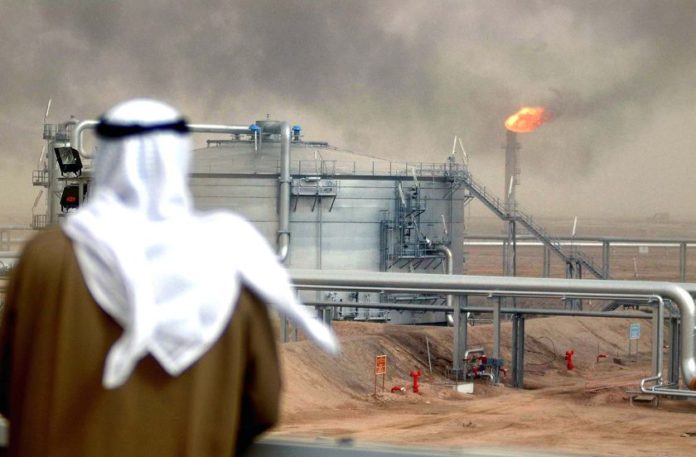
In just 5 years, Saudi Arabia might run out of financial assets. This was the warning made by the International Monetary Fund, stating that the largest economy in the Middle East faces bankruptcy if it continued its current trajectory.
Saudi Arabia is forecast by the IMF to run a whopping 21.66% budget deficit in 2015, and be 19.4% over budget in 2016.
The IMF believes that regional conflicts and collapsing oil prices would put a damper on GDP.
“Achieving fiscal sustainability over the medium-term will be especially challenging given the need to create jobs for the more than 10 million people anticipated to be looking for work by 2020 in the region’s oil exporting countries,” IMF Middle East and Central Asia Department Director Masood Ahmed said in a statement after the report’s unveiling in Dubai.
“Experts” cited by the report believe that oil prices are expected to stay at current low levels for the long term.
“For the region’s oil exporters, the fall in prices has led to large fall in revenue, amounting to a staggering $360 billion this year alone,” Masood Ahmed said.
Saudi Arabia has not faced a budget deficit since 2009. Already, it has cut spending and delayed projects, though the measures seem insufficient and it has had to sell state bonds worth 15 billion dollars.
“There have been a number of one-off spending proposals this year that have taken place, and those initiatives have added to the spending needs,” Masood Ahmed said.
Saudi Arabia is, in a sense, causing its own problems; as the largest member of OPEC, its refusal to thus far cut production is hurting OPEC and non-OPEC oil-producers. While the policy is ostentatiously to maintain market share, the real implication might be to cause other oil producers with higher costs and fewer reserves to shutter. The US shale boom for example has mostly dried up as a result.
Whatever the reasoning, the country will have to tighten its belt further if it wishes to maintain this policy.
Sources: RT, Financial Post
This Article (IMF: Saudi Arabia May Be Bankrupt By 2020) is free and open source. You have permission to republish this article under a Creative Commons license with attribution to the author(CoNN) and AnonHQ.com.




